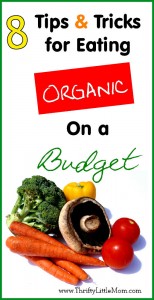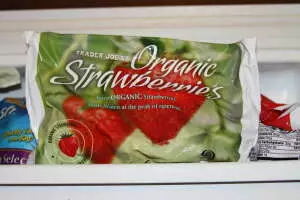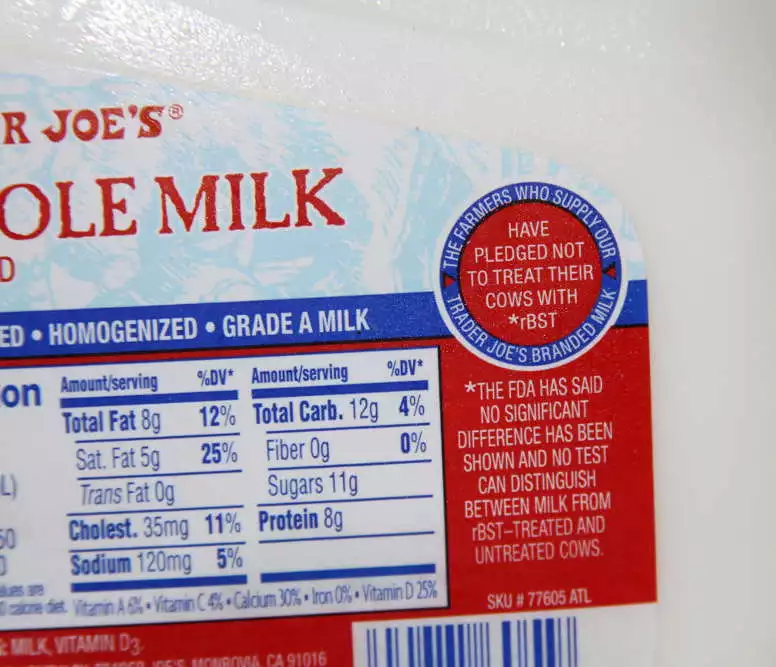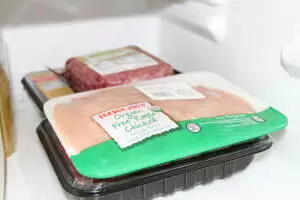8 Tips for Eating Organic & Natural While On a Budget
 To be honest, I go through phases when it comes to buying organic foods. I know a few people who live organic everyday but I guess I’ve just never been up for the test to see if I could afford it. There is a store in my area that sells organic and natural food and there is a reason that people call it “Whole Paycheck”. It’s expensive. I try to do my best to get what organic items I can at my regular grocery store but they just haven’t expanded the organic section enough. I want to see if I can actually feed my family an all organic or natural diet. To accomplish this, I went down to the cheapest place I know of in town to buy organic and natural foods. That would be Trader Joe’s. I used my Emeals shopping list and tried to find organic versions of anything I could on the list. I felt pretty successful today. I spent $115 on groceries. My normal budget is $100 so I did go a little over, but not enough to say it took my whole paycheck. I got all the ingredients I needed for dinner this week and our normal dietary staples. After shopping for organic, here are the things that I have learned to help me stay on budget.
To be honest, I go through phases when it comes to buying organic foods. I know a few people who live organic everyday but I guess I’ve just never been up for the test to see if I could afford it. There is a store in my area that sells organic and natural food and there is a reason that people call it “Whole Paycheck”. It’s expensive. I try to do my best to get what organic items I can at my regular grocery store but they just haven’t expanded the organic section enough. I want to see if I can actually feed my family an all organic or natural diet. To accomplish this, I went down to the cheapest place I know of in town to buy organic and natural foods. That would be Trader Joe’s. I used my Emeals shopping list and tried to find organic versions of anything I could on the list. I felt pretty successful today. I spent $115 on groceries. My normal budget is $100 so I did go a little over, but not enough to say it took my whole paycheck. I got all the ingredients I needed for dinner this week and our normal dietary staples. After shopping for organic, here are the things that I have learned to help me stay on budget.
1. Take a list- If you go into a natural foods store there are tons of yummy looking chips, dips, candy, baked goods and other amazing foods. Impulse buying with just a few items can quickly send you over budget. As a side note, just because they are delicious looking and contain healthier ingredients, doesn’t mean they are calorie or fat free..just sayin.
2. Eat before you go- Seriously, you can’t go into these stores hungry. I know this isn’t new information but it will help you stay away from impulse purchases. I actually brought along a travel straw cup with ice and soy milk in it and dumped a small sample cup of the stores free coffee in my drink. Instant iced coffee to carry around the store! The pumpkin coffee was pretty darn good!
3. Decide what’s important- Organic or Natural? If you don’t really care about organic and want to stick with all natural versions that’s okay. It’s totally up to you. If you want to go all organic on a budget, you may have to eat less food. Balance is key. 80/20 rule right? You can do a combo of both. The only person paying your bills and eating your food, is you. Buy what you can, with what you have.
 There are a few top contenders when it comes to paying extra for organic and those are called the “dirty dozen”. These are foods that have high levels of pesticide use and if you can choose organic with these it’s best. If you click the “dirty dozen” link you will also see the 12 least contaminated foods. That way you can feel okay about not buying organic versions of fruits and veggies if your budget doesn’t have room for them.
There are a few top contenders when it comes to paying extra for organic and those are called the “dirty dozen”. These are foods that have high levels of pesticide use and if you can choose organic with these it’s best. If you click the “dirty dozen” link you will also see the 12 least contaminated foods. That way you can feel okay about not buying organic versions of fruits and veggies if your budget doesn’t have room for them.
Milk: Something else I would like to quickly add is that I buy my milk from Target or Trader Joes and I don’t worry about getting the organic kind. If you read the labels on the store brand milk from these two places you will see a tiny note stating that they do not use milk treated with rbst. That’s enough for me. My toddler and husband burn through 2 gallons a week!
4. Shop sales- Trader Joe’s in general seems cheaper to me but if you catch a sale at your local natural food stores or buy veggies in season you can save some money! Whole Foods has sales occasionally on Friday’s offering great prices on things like organic chicken or other staples you can stock up on and freeze. They also do great buys on in season produce regularly. It all comes down to a little planning if you want to stay in budget.
5. Coupons- You can get coupons for organic stuff online. If you visit Whole Foods web site they even offer coupons you can use in their store. Common Kindness is a good source of coupons too.
6.Shop your local grocer- Your local grocery store may be trying to meet the needs of people hungry for organic. Check with store employees to see if organic foods are spread throughout the store with special shelf labels or in a total section of their own. I have even seen friends who get a ton of organic food from Costco.
7. Join Co-Ops and buy locally There are some really great organic, natural and local produce co-ops out there. I joined one once but I got so many veggies and fruits in my box that they would go bad faster than we could eat them. These are really great programs though. You can find more information about places specific to where you live by going to Local Harvest.org. I live in a kind of rural area and I can stop at several farmers stands on the side of the road and buy food from them.
8. Grow your own.- This summer my husband and I bought organic seeds from Home Depot to grow our own tomatoes. We eat a ton of salsa. This worked out great! The tomatoes came in and were beautiful. We are still getting them in. Remember, you can freeze or can a lot of vegetables. Then you can have a stock of organic vegetables all year-long for the cost of seeds and dirt.

Why Organic?- Some people think of organic as a little silly. Food is food right? Well, yes. Food feeds your body. However, there is a lot of information out there now about the use of genetically modified organisms (GMO). The documentary called “Food Inc.” explains GMO’s. If you are considering switching your diet, go ahead and watch it so it can ease your decision-making. You will learn about a very large company in the US that has patented their genetically modified seeds. (Yes, you can apparently patent life.) The genetically modified ingredients are in almost every single processed food out there because they pretty much dominate the corn and soy bean production industry. That means if you look at the ingredients label on your food and you see corn or soy anything and the package isn’t labeled non-GMO or organic you can almost bet your consuming GMO’s. A large portion of animal feed is made up of GMO based ingredients. I’m no scientist or nutritionist but genetically modifying stuff never goes well in super hero movies. It is a blessing in that we can feed all our people but a little scary to think that food is being altered from it’s natural state. So because I live in America and my dollar goes wherever I choose to put it, I try to choose non-GMO products. Thus I’m attempting to switch over to as much organic as I can. Let me know if you have found any great ways to save on organic or natural foods.

Kim Anderson is the organized chaos loving author behind the Thrifty Little Mom Blog. She helps other people who thrive in organized chaos to stress less, remember more and feel in control of their time, money, and home. Kim is the author of: Live, Save, Spend, Repeat: The Life You Want with the Money You Have. She’s been featured on Time.com, Money.com, Good Housekeeping, Women’s Day, and more!
